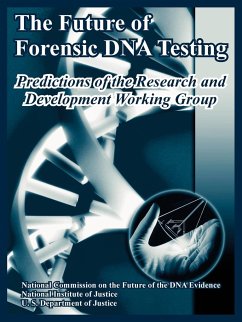The National Commission on the Future of DNA Evidence was created in 1998 at the request of Attorney General Janet Reno. When she read about the use of DNA to exonerate someone wrongfully convicted of rape and homicide, she became concerned that others might also have been wrongly convicted. The Attorney General then directed the National Institute of Justice (NIJ) to identify how often DNA had exonerated wrongfully convicted defendants. After extensive study, NIJ published the report Convicted by Juries, Exonerated by Science: Case Studies in the Use of DNA Evidence to Establish Innocence After Trial, which presents case studies of 28 inmates for whom DNA analysis was exculpatory. On learning of the breadth and scope of the issues related to forensic DNA, the Attorney General asked NIJ to establish the Commission as a means to examine the future of DNA evidence and how the Justice Department could encourage its most effective use. The Commission was appointed by the former Director of the National Institute of Justice, Jeremy Travis, and represents the broad spectrum of the criminal justice system. Chaired by the Honorable Shirley S. Abrahamson, Chief Justice of the Wisconsin State Supreme Court, the Commission consists of representatives from the prosecution, the defense bar, law enforcement, the scientific community, the medical examiner community, academia, and victims' rights organizations.
Hinweis: Dieser Artikel kann nur an eine deutsche Lieferadresse ausgeliefert werden.
Hinweis: Dieser Artikel kann nur an eine deutsche Lieferadresse ausgeliefert werden.







